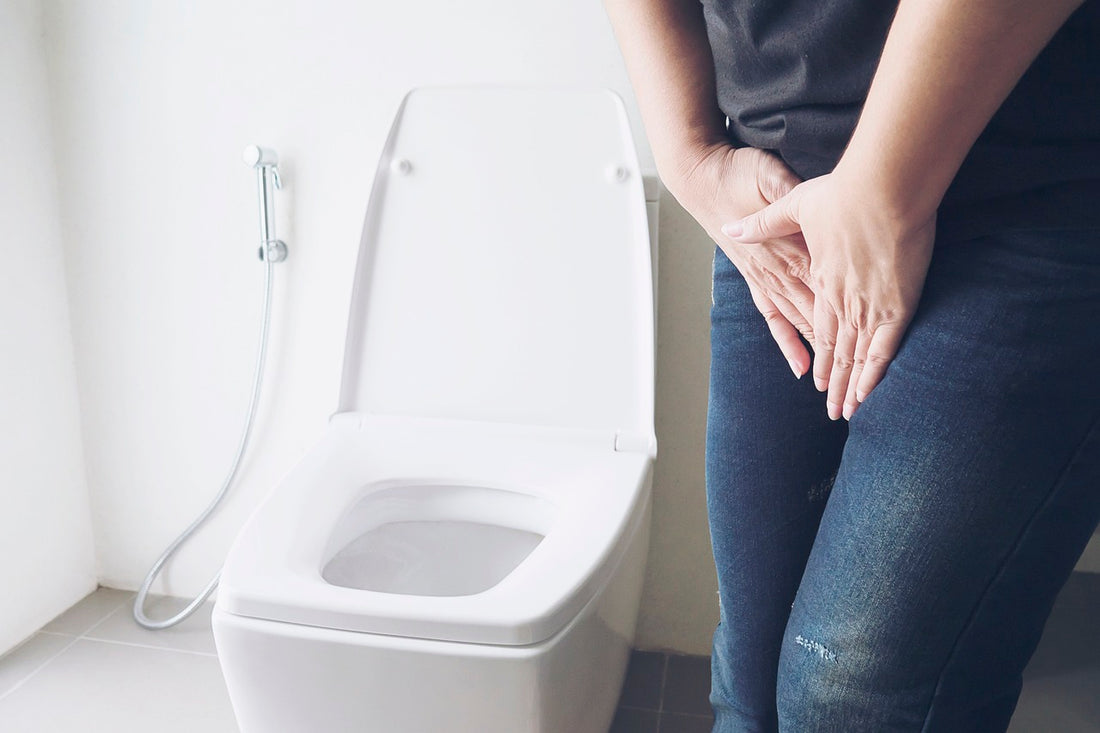November is Bladder Health Awareness Month, a great opportunity to remind ourselves of how important the bladder is to our health. This month is the perfect time to learn more about the bladder and what you can do to maintain a healthy urinary system. Like most parts of the body, when it works well you do not notice it but when it does not, the bladder can cause many problems.
What is the bladder?
The bladder is a balloon-like organ located in the pelvic area. Urine is made in the kidneys and it travels down tubes called ureters to the bladder. The urine is stored in the bladder which stretches until it empties, hopefully, completely at the right time.
How can I tell if my bladder is healthy?
A healthy bladder should:
- Hold up to 400-600mL of urine and be emptied around 4-8 times a day
- Tell you when it’s time to go to the toilet and give you enough time to do so
- Empty completely
- Not leak particularly with coughing, sneezing and laughing
- May wake you up once a night to go to the toilet. More than that and you need to be checked out.
What are the symptoms to look out for?
Over 4 million Australians experience some issues with their bladder.
Most people do not seek help. Suffering in silence leads to real social difficulties. Even routine things such as shopping can become difficult if you have to know the location of all the public toilets.
So what are the symptoms of a bladder that might have a problem?
Identifying the symptoms that could suggest something might be wrong is important. Early advice is the most helpful advice.
Ask yourself:
- Do you sometimes feel you have not completely emptied your bladder?
- Do you have to go back to the toilet for a second “go” soon after emptying your bladder?
- Do you rush to use the toilet?
- You wake up more than once at night to go to the toilet?
- Do you sometimes leak before you get to the toilet?
- When you put pressure on your tummy by lifting, sneezing, coughing, laughing or exercising, do you leak urine?
- Do you have to know where the nearest toilet is to feel comfortable when outside your home?
If the answer to any of these questions is a “Yes” then go and have a talk with your doctor.
The common problems……
In women, urinary infections are very common with about 1 in 2 women having an infection during their life. For men that figure is only about 1 in 20.
Women, particularly after normal childbirth, often find that their bladder begins to leak. This problem can nearly always be helped.
In men, their enlarging prostate is the main culprit. The prostate sits at the base of the bladder and causes two main problems. Firstly, it can “tell” the man that the bladder needs emptying when it really doesn’t and secondly, as it enlarges, it can slow the urine stream emptying out of the bladder.
Promoting a healthier bladder
Bladder health is not just about fixing a problem, it is also about being proactive and talking about it with your doctor.
- Stay hydrated – Drink about 2 litres of water daily.
- Reduce your caffeine and alcohol – Both these can irritate the bladder.
- Strengthen your pelvic floor – Strong pelvic floor muscles support your bladder.
- Maintain a healthy weight – Extra weight means extra pressure on your bladder.
- Increase your fibre intake – Constipation causes stress to the bladder.
- Quit smoking – The nicotine in cigarettes directly irritates the bladder. Smoking also causes chronic coughing which puts pressure on the bladder.
Get the help you deserve
Make this Bladder Health Awareness Month a time to look out for the changes in your bladder function, such as increased frequency, difficulty holding urine and leakage. Discussing these symptoms with your GP can help put you on the right track to making a real difference to your bladder and your life.
Early intervention – for all medical problems - is so important.

